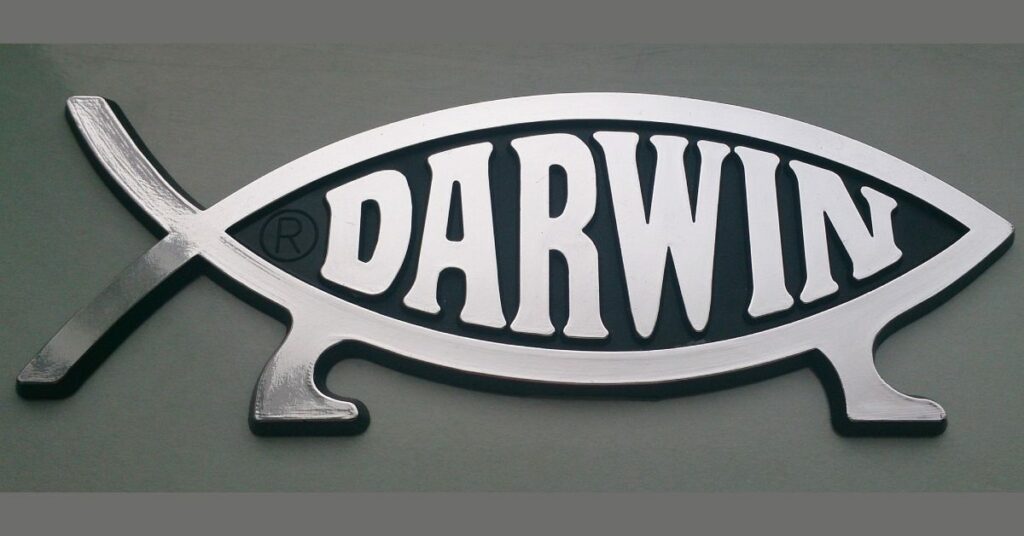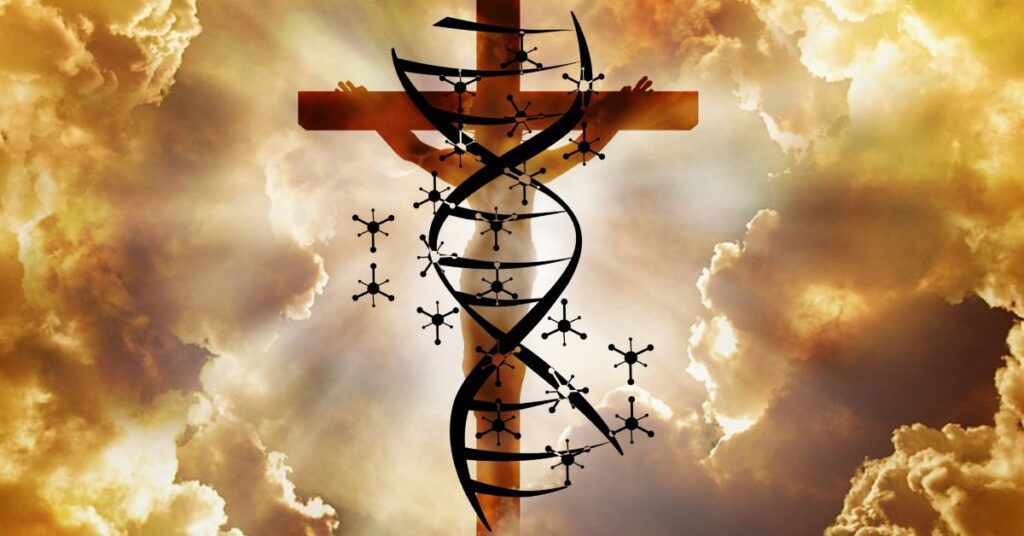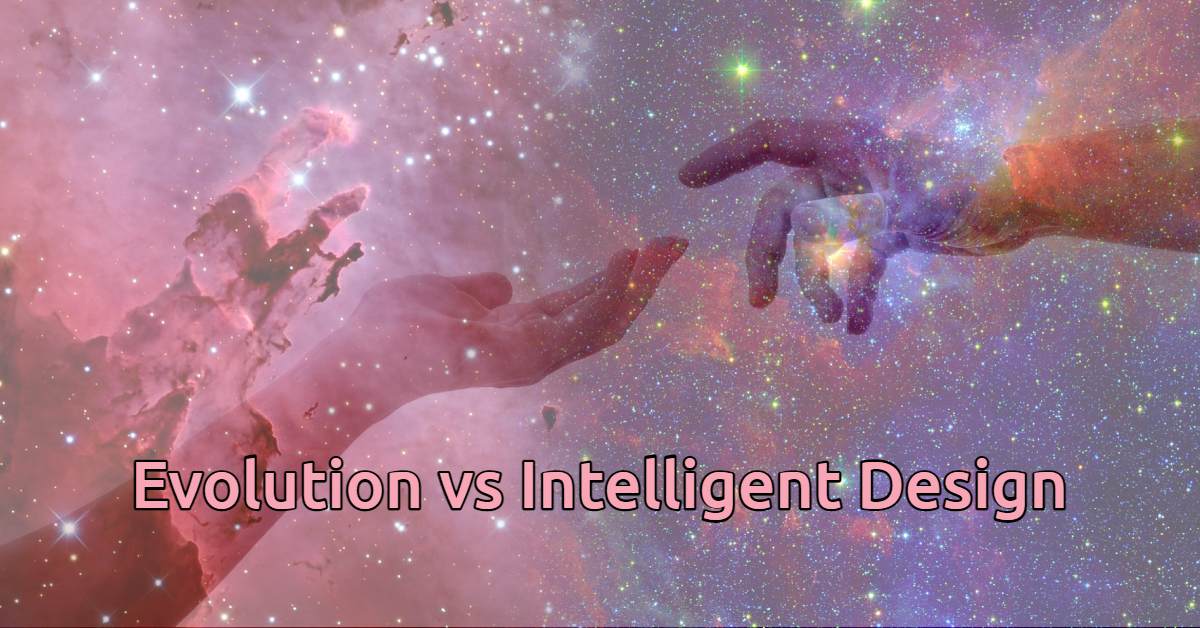The intelligent design versus evolution debate revolves around the question of whether the complexity and diversity of life can be best explained by natural processes, such as evolution, or if they require the involvement of an intelligent designer. Below are some of the key points and arguments within this ongoing debate. For those charged within their congregation to be responsible for church growth, it is wise to be well-versed in the evolution vs intelligent design debate.
The Universe According to Intelligent Design
Intelligent design posits that certain features of the natural world are best explained by an intelligent cause rather than undirected natural processes. Proponents argue that some biological structures, such as the complexity of living cells or the intricacies of molecular systems, are highly unlikely to have arisen through random mutation and natural selection alone. They propose that these structures are the result of an intelligent agent, often referred to as the “designer.”
Irreducible Complexity
A central argument put forth by intelligent design proponents is the concept of irreducible complexity. They contend that certain biological systems are composed of multiple interconnected parts, and the removal or alteration of any part would render the system non-functional. Proponents argue that such systems could not have evolved gradually through natural selection because the intermediate stages would have had no function or provided no selective advantage.
Specified Complexity
Another key argument from intelligent design is the idea of specified complexity. Proponents claim that some biological structures exhibit patterns that are highly improbable to have arisen randomly. They argue that the intricate arrangement of specific sequences, such as the genetic code or the complexity of certain proteins, points to the involvement of an intelligent agent.
Criticisms of Intelligent Design
Critics of intelligent design argue that it lacks scientific rigor and does not meet the criteria of a scientific theory. They claim that intelligent design relies on a “God of the gaps” approach, seeking to explain gaps in scientific knowledge by invoking an intelligent designer and the power of prayer. They assert that intelligent design does not make testable predictions or provide a mechanism for investigation through empirical research.
Evolution by Natural Selection
Evolution, based on the theory of natural selection, provides a widely accepted scientific explanation for the diversity and complexity of life on Earth. It posits that all living organisms share a common ancestry and have evolved over billions of years through the accumulation of genetic variation and the process of natural selection.

Overwhelming Scientific Consensus
The scientific community overwhelmingly supports evolution as the most well-supported explanation for the origins and development of life. Evolution is supported by extensive empirical evidence from various fields, including genetics, paleontology, comparative anatomy, and molecular biology. The fossil record, genetic studies, and observations of evolutionary processes in action, such as bacterial resistance to antibiotics or the emergence of new species, provide robust evidence for the gradual change and diversification of life over time.
Separation of Science and Religion
Many scientists argue that science and religion address different realms of human understanding and should be seen as complementary rather than conflicting. They maintain that science seeks natural explanations for natural phenomena, while religious beliefs pertain to matters of faith and spirituality. They argue that intelligent design falls outside the realm of scientific inquiry and should not be taught as a scientific theory in educational settings.
In summary, the intelligent design versus evolution debate centers around the question of whether the complexity and diversity of life require the involvement of an intelligent designer or can be explained solely by natural processes.
While proponents of intelligent design argue for the presence of an intelligent agent, the scientific consensus firmly supports evolution by natural selection as the most well-supported explanation for the origins and development of life, based on extensive empirical evidence.

Creationism vs Intelligent Design: Diverging Religious Opinions
While both creationism and intelligent design offer alternative explanations to mainstream scientific theories, their contrasting viewpoints have sparked intense deliberation among scholars, theologians, scientists, and the general public.
Creationism, rooted in religious belief systems, asserts that the Earth and all life forms were divinely created as described in religious texts. Proponents of creationism often advocate for a literal interpretation of sacred scriptures, such as the biblical account of Genesis.
In contrast, as mentioned above, intelligent design theory postulates that certain features of the natural world exhibit evidence of purposeful design, implying the involvement of an intelligent creator. Advocates of intelligent design argue that the complexity and intricacy of biological systems cannot be explained solely through natural processes.
The History of Creationism
To comprehend the creationism vs. intelligent design debate fully, it is crucial to delve into the historical background of both perspectives. Creationism has its origins deeply intertwined with religious traditions, with roots tracing back thousands of years.
From ancient creation myths to the modern-day Young Earth Creationism movement, the belief in a literal interpretation of sacred texts has persisted throughout history. Conversely, intelligent design emerged as a distinct concept in the late 20th century, drawing from philosophical, scientific, and theological considerations.
Within creationism, various interpretations and subcategories exist, reflecting diverse religious beliefs and cultural contexts. Some creationists adhere to the concept of a young Earth, proposing that the planet is only a few thousand years old, while others interpret the creation story metaphorically, accommodating scientific discoveries.
The History of Intelligent Design
On the other hand, intelligent design theory does not necessarily align with specific religious doctrines, aiming to present a scientifically grounded argument for the existence of an intelligent creator. Advocates of intelligent design often emphasize the concept of irreducible complexity, positing that certain biological structures could not have evolved through gradual, naturalistic processes alone.
While creationism and intelligent design offer alternative explanations for the origins of life, scientific communities have raised substantial critiques against both viewpoints. Critics of creationism argue that it contradicts well-established scientific principles, including evolutionary biology, geological dating methods, and the fossil record.
Furthermore, intelligent design theory faces criticism for lacking empirical evidence, testability, and explanatory power. Scientists maintain that attributing complex biological structures to an intelligent designer is an argument from ignorance, as it relies on gaps in current scientific knowledge.
Evolution vs Intelligent Design: Conclusions (Or Not)
In the vast realm where science and religion intersect, few subjects ignite as much controversy and passionate discourse as the clash between creationism and intelligent design. At the core of this debate lies the fundamental question of how life and the universe came into existence.
Moreover, the debate has broader cultural implications, influencing public opinion, scientific literacy, and the relationship between science and religion. Public opinion polls reveal a spectrum of beliefs, with a significant portion of the population supporting creationism or intelligent design over evolutionary explanations.
The ongoing clash between religious convictions and scientific consensus has implications for science education, as it highlights the challenges of fostering scientific literacy and critical thinking in society.
As the debate rages on, it is essential to seek common ground and foster respectful dialogue between opposing perspectives. Encouragingly, some theologians and scientists propose reconciling science and religious faith, viewing them as complementary rather than conflicting domains of knowledge.
By acknowledging the compatibility of science and religion, exploring nuanced theological interpretations, and highlighting scientists who hold religious beliefs while embracing scientific principles, there is potential for bridging the gap between creationism, intelligent design, and evolutionary biology.
Looking to the future, finding resolutions requires a multifaceted approach. Science education plays a pivotal role, as it equips individuals with the tools to critically evaluate scientific evidence and understand the nature of scientific inquiry. Encouraging open-mindedness, fostering scientific literacy, and promoting dialogue that respects differing viewpoints can contribute to a more informed and nuanced discussion.
Additionally, the scientific community can continue its exploration of the natural world, striving to unravel the mysteries of life’s origins through rigorous research, observation, and experimentation. Advancements in fields such as evolutionary biology, genetics, and cosmology offer glimpses into the mechanisms and processes that have shaped our universe and the diversity of life within it. Engaging with these scientific discoveries and promoting their understanding can help inform the discourse on creationism and intelligent design.
Ultimately, this debate serves as a reminder of the complexities inherent in the search for truth and understanding. It highlights the interplay between deeply held beliefs, scientific inquiry, and the cultural and social contexts in which these debates unfold.
As society navigates these waters, it is crucial to foster an environment that values both intellectual rigor and respectful engagement, acknowledging that diverse perspectives can coexist while contributing to the broader pursuit of knowledge and understanding.


A very convincing argument. Let’s never give up the right for free thinking.